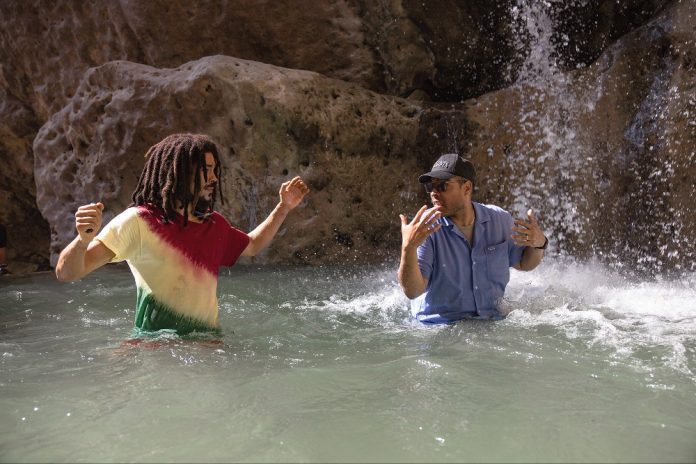Filmmaker Reinaldo Marcus Green has already mastered the art of the biopic with King Richard, which won Will Smith his first Oscar, which followed Joe Bell, starring Mark Wahlberg. Even so, tackling the story of one of Jamaica’s greatest experts with Bob Marley: One Love must have been particularly daunting, only because Marley has so many fans with very serious expectations of what his story should include.
Fortunately, Green had actor Kingsley Ben-Adir (One Night in Miami…) taking on the role of Marley between the years of 1976 and 1978, as well as Lashana Lynch (No Time to Die) playing his equally iconic wife, Rita Marley. The story follows Marley as he’s achieved the height of fame in Jamaica, but ends up having to leave the country after an attempt on his life amidst the country’s political turmoil.
As a director, Green continues to prove himself to be a filmmaker and storyteller, who is bound to keep making movies that are frequently in the awards conversation, and despite its February release, the same can be said about his creative decisions in telling the Bob Marley story. (You can read Above the Line‘s review here.)
Above the Line got on Zoom with Green out of the film’s junket last week for the following interview.
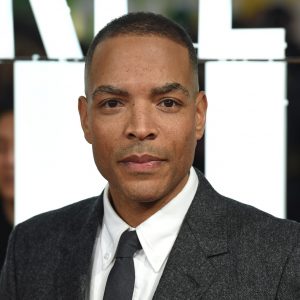
Above the Line: It’s so nice to meet you. I’ve been a fan since I saw Monsters and Men at Sundance however many years ago that was.
Reinaldo Marcus Green: Awesome, awesome. I love that, man. John David [Washington], Anthony [Ramos], Kelvin [Harrison], Chanté [Adams], what a cast. Love that.
ATL: You got those actors quite early in their careers, which is why I was so excited when I heard you were tackling Bob Marley, because I enjoyed King Richard, as well. First off, what was your own background with Bob Marley? When did you first hear his music, and what was your first impression of it?
Green: It was from my birth certificate, man, for sure. My dad named me “Reinaldo Marcus Green” after Marcus Garvey, who Bob studied. That was no accident. My dad named my brother after Ché Guevara. So he was a revolutionary spirit, always had Bob in the house, always had rebel music in the house, always talked to us about black history. I think just from an early age, Bob was always around, was an influence. I didn’t know I was gonna make a movie about him, but I think it was one of those things that the seeds were planted very early for me, and I’m just so grateful for that.
ATL: I may have gotten into Marley later than usual, though I was aware of his influence on The Clash and The Police, but I don’t think I really got into him until that 2012 documentary, when I learned so much about his life which I didn’t know.
Green: The same for me. I was born the year Bob died, and so I never got a chance to see him in concert or anything like that. When I heard about this movie, there was a lot that I had to learn. I mean, there’s still a lot that I have to learn. There’s been over 500 books written about Bob. To me, obviously, you see him on every T-shirt, every button, every bag, and I could even recite some lines to his songs, but I didn’t really know that much about the man. I never spent the time dissecting the lyrics. It was happy, feel-good music, but I never really understood the deep struggle, the political strife, what he was going through, until the making of this movie. It gave me an opportunity to try to understand the myth, the man behind the legend.
ATL: I definitely didn’t know that there was so much going on in Jamaica around those times in the 70s. I knew about the political issues in London, but had no idea Jamaica was close to a civil war, and that Bob was at the center of bringing together the two sides. Was that something you discovered while researching the movie you wanted to make?
Green: Yeah, for sure. I had read Marlon James‘ book, The Seven Killings a while before, and thought it was a fascinating riveting tale. This is years before even thinking about doing the Bob Marley movie. When this project came to me, of course, it was trying to figure out what window of life, which part of Bob’s life we were going to depict in the film. I was not your musical biopic guy. I didn’t think I was ever going to make a musical biopic, but I thought if there’s one to do it, Bob is certainly one. Why? Because there’s an enigma about him, there’s a mystery about heavens. There are things that the public doesn’t know. And then, it was trying to go on that journey. What is that? What is the stuff that we don’t know? I had seen that documentary that Kevin Macdonald did in 2012, amazing documentary, but we were making a film, and what part of Bob’s life we’re going to depict? I think we landed on a period of time that gave us a celebration of Bob’s life, a period of time of rich musical creation, musical genius. The part that I wanted to see, the part that I wanted to discover, what was it like writing a song with Bob Marley? What was that like? What was it like performing with Bob? I wanted to be in that environment. That seemed like a fun [way in], and we can fill in the blanks there.
ATL: I know you had Venus and Serena Williams as exec. producers on King Richard. For this one, you have a lot of Marleys involved, including as the movie’s music supervisor. What was it like meeting them for the first time? Did you have to have a pitch ready for them, or were they aware of your work from King Richard and approached you?
Green: I met a lot of the Marleys at different times, but my very first meeting was with Ziggy Marley and one of the other producers of the film, Bob Teitle. I remember from that first call, Ziggy had mentioned a short film that he had seen of mine, called Stone Card, and I thought, “Oh, he’s not talking about King Richard, the Oscar movie. He’s talking about this short film I made in film school.” It was a short film I made in Cape Town, South Africa with no money and all-natural light. It was great, because it gave me an insight as to what kind of movie he wanted to portray about his dad. I knew he wanted to do something real and raw and different, which was great for me, because I didn’t think I was a musical biopic guy. I’m thinking about films like City of God or Amores Perros or Black Orpheus, and I was, “Could I make a movie like that that has music in it?” versus the other way around. I felt like we were aligned early, and then, in prep, I read Rita’s book, I wanted to meet Rita, I met Sadela. I met Sharon, I met Rohan, I met Stephen, and for different reasons, and they had different stories about their father in different perspective, but they were all like an extension of Bob – their mannerisms, their disposition, their fight. It was so incredible to be around them, because I felt like I got a piece of Bob through his children, so they were incredibly helpful to not only myself, but the entire cast, the entire crew, in helping us uncover who Bob was. And who better than the family? I mean, they knew him. That was their dad. Out of all the 500 books written about Bob, what’s the truth? Whose truth is it? So I had to start somewhere, and starting with the family was a great, great starting place.
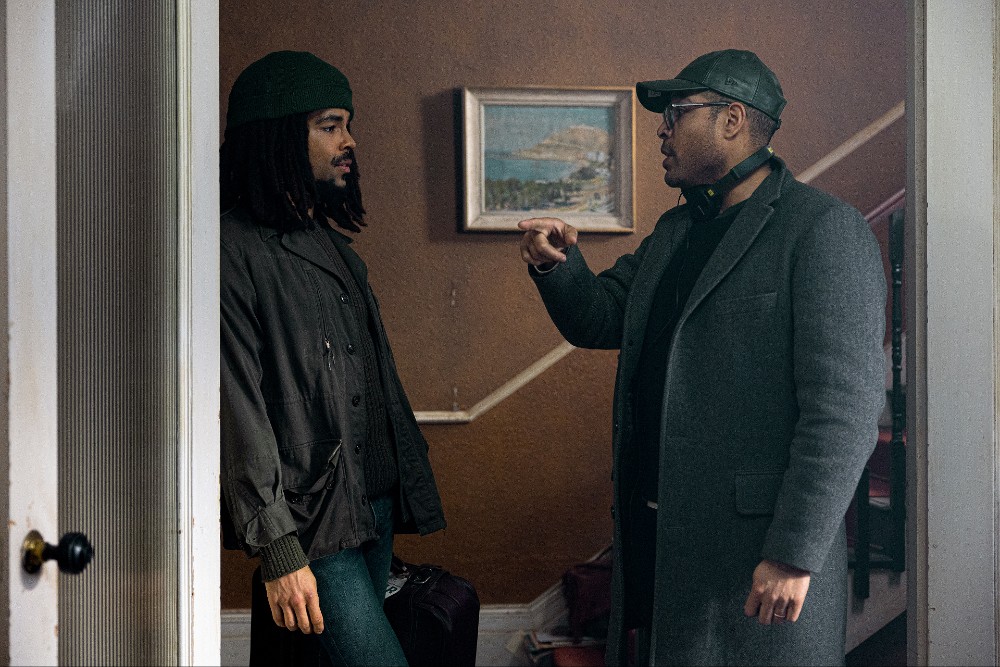
ATL: How’d you end up with Kingsley playing Bob? He’s kind of perfect. I’m not sure if he has any Jamaican or Caribbean roots, but he really embodies everything I’ve seen from Bob in interviews and concert footage. There are so many subtle mannerisms he captured, as well.
Green: When I first saw Kingsley’s tape, there was no wig, there were no prosthetics. It was just a really great actor, giving a really great audition for this film. I had looked at hundreds and hundreds and hundreds of tapes, and nothing came close, and to be quite honest with you, it was in the 11th hour; I didn’t think it was going to happen. And then this tape shows up, and I’m like, “Who is this guy?” All of a sudden, I’m leaning in, and it’s when I start reaching for popcorn, and I’m watching an audition tape, that’s a pretty good sign. Little did I know, he didn’t sing or dance or any of that stuff, but in the same way that I created King Richard, I wasn’t looking for tennis players, I was looking for an actor. It was about the emotion of are we going to care about Bob as a person, as a father, as a husband, as a man. And then, the music part was secondary. Kingsley went on a deep, deep, deep journey to find Bob together, and what he was able to uncover – the mannerisms, the movement, you can’t mimic Bob. It’s impossible to mimic him, so what he was able to do is to create enough of a backstory together to create the essence of a man, so that we can get close to it. And then, we accented him, we surrounded him with real Jamaicans, real offspring. The band is real. That’s Family-Man Barrett‘s son, that’s Junior Marvin‘s son playing real music, real musicians. So when Kingsley gets into those spaces, they feel real, it’s not artificial. When I called “cut,” there was like a mini band happening. There was a real jam session. We did a lot to create the seamlessness of trying to bring Bob to life, and kudos, man, he delivers an exceptional performance. He had great supporting casts, of course, and Lashana Lynch. Really, all the cast that helped to support Kingsley.
ATL: I didn’t even recognize Lashana as Rita, and I had to see that it was her in the credits. I didn’t realize that was her, but she really delivered the perfect counterpoint to Kingsley, so how did you end up casting her as Rita?
Green: Lashana, I remember I sat down with her in a café in LA. She is of Jamaican descent, and I remember how important this role was for her. I remember her just really being adamant that if she took it on, she was going to bring a life to it, a dimensionality, that we needed to make sure that we were honoring Rita. I think Rita oftentimes has gone overlooked, but she was not only the matriarch of the family, but she was a band member. She’s also the one that introduced Bob to Rastafarianism which is probably the single most important thing in Bob’s life, his spiritual gift. It’s not just a cool hairstyle. Bob devoted his life to a religion, and he sang about it, and he gave it to us. So Rita was critical in his journey, and Lashana really helped to bring out the nuance of who Rita was – the fight, the presence, the perseverance, and the support. She still loves that man to this day. It’s incredible to see how much she has stayed by his side through life and through death. Rita’s just a remarkable woman with a remarkable story, and her story needed to be told as well.
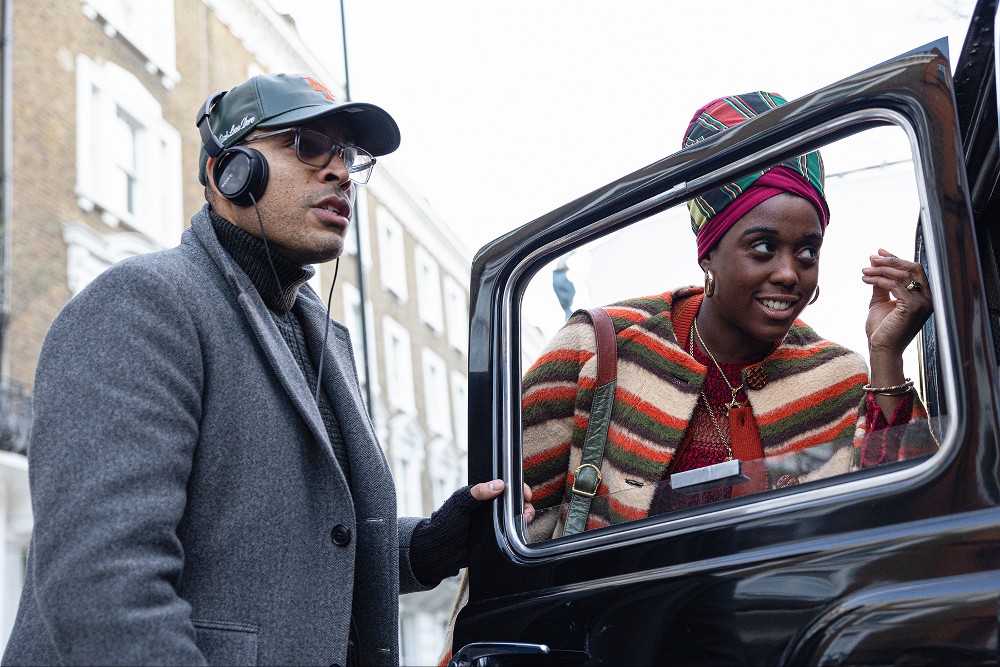
ATL: It’s like what they say about behind every great man being an equally great woman, and I’m glad she has an important role, because I don’t remember seeing her much in the trailers. Did you actually end up shooting a lot of the film in Jamaica, and did having Ziggy and other Marleys make that happen easier than it might have otherwise?
Green: I think we shot 26 days in Jamaica, and for me, it was my second time returning, so it was a little bit of a homecoming. I had shot a TV show called Top Boy there, so it was great to return, but this time was different. Bob is different, another level. Everybody in Trenchtown, that’s their hero, so there’s no messing with Bob. They did let us film, and we had the full support of the community, the Film Commission, the family. When I was in Trenchtown, I never felt more comfortable. They really embraced us. They really gave us the opportunity to share this movie with them, and it was always their movie. I felt like the more specific we got, the more universal the film became. There is no film without Jamaica; truly, they were the heartbeat of this film.
ATL: What was it like premiering the movie there? I’m sure a lot of people there were watching this project quite intently to see whether you could pull it off, so was it nerve-wracking that premiere? Do you feel the Jamaican people connected with what you did?
Green: Of course, I was nervous. It’s Jamaica, you want to make sure that we did right, and yeah, you could take a little bit of a deep breath. You felt being in the theater that they accepted Kingsley as Bob, and that was incredible. People singing, dancing, laughing at the right moments, crying – it was a full range of emotions, and it was incredible to share that with the people of Jamaica – this movie is for them. That tiny country birthed Bob Marley, one of the greatest to ever do it, and if they can be proud, I can be proud.
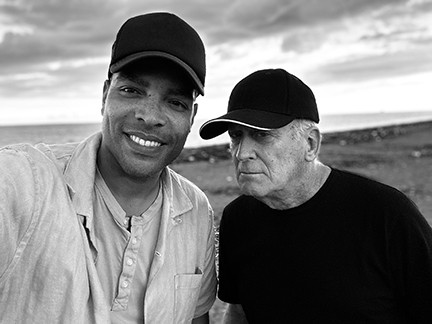
ATL: I have to ask about Kris Bowers, because when I first saw King Richard, I loved the score so much, I stayed through the credits to find out who did the score. I actually just spoke with Kris a few months ago, but for this one, it’s a little tougher since he’s trying to create score around the music of Bob Marley and the Wailers. How did you work with Kris to make sure his score was enhancing the musical experience beyond Bob’s music?
Green: I think this is our fifth or sixth project together. He’s pretty much done everything I’ve done from Monsters and Men all the way through King Richard, and We Own the City, and now, Bob Marley. So for me, even when I got the script, the first script, and I started writing, I engaged Kris, so I was telling him about Bob. I knew he was going to have some time – I had about a year of work on the script with my co-writer, Zach Baylin. I engaged Kris right away, just letting him know, so he can start thinking about the chords, the chord progressions. We go from the script level – that’s how close our relationship is – and we can talk about these things.
Look, we’re making a movie, so it’s really hard, right? You have Bob’s music, but then it’s like, “Well, how do we take that music and then elevate it? Can you even elevate Bob’s music even more? Like how do we bring it out in a cinematic language?” It was using Bob’s music as a foundation to build the score. We always knew we wanted to keep it organic and in the same family, but also take some risks, do something different, allow certain moments to be emotional. Reggae is tricky, right? Because of the chord progressions and some of the sounds, it doesn’t always work in every cinematic moment. How do you take those moments and use the basis of reggae to accentuate a moment in the film? I think that’s what Kris does so brilliantly, but again, these conversations start months and months in advance of the filmmaking process for me. He sees all my bad writing, all my good writing, anything in between. Part of the process of making movies is engaging your team, and for me, I had a lot of returning players from King Richard – my editor Pam Martin, my DP Robert Elswit, my hair and makeup Carla Farmer, so we were able to bring a lot of the same people from King Richard to help bring this film to life.
ATL: There were a few times when I thought they maybe had remixed some of Bob’s songs, since they seemed just so modern and sounded so good in the theater where I saw the movie, much better than the original records from the ’70s. Was there some remixing that happened?
Green: Well, they didn’t have 5:1 and 7:1 then, so you’re probably hearing instrumentation that you never got a chance to hear before, which is incredible. What a great way to experience the horn, the frequency, the sound. You hear the instrumentation, you hear the vocal prowess of Bob. It’s just amazing to be able to actually go into a cinema and experience the music this way. It’s really, really amazing, so yeah, the music sounds better, quite honestly, just based on the recordings that we had.
Bob Marley: One Love opens nationwide on Wednesday, February 14.


